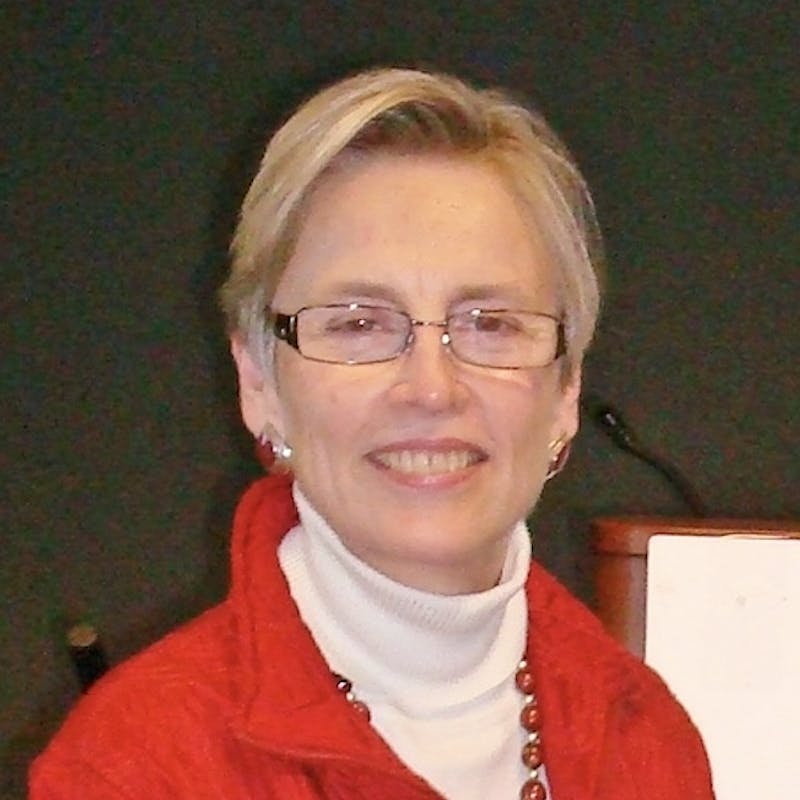
Tell us about a woman who inspires you.
The number of women who inspire me continues to grow. I’m always impressed by women who have stood up against the odds and worked to make things better. That’s why it’s so important to uncover and share the stories of the many women who have done so throughout US history. These include, but certainly are not limited to, the millions of women who worked for generations to ensure that the US Constitution guarantees women’s right to vote.
I am particularly inspired by the efforts of Carrie Chapman Catt, the president of the largest suffrage organization, the founder of the League of Women Voters, and a lifelong activist in both international suffrage and peace organizations. She was so famous in her own time that she was on the cover of Time magazine, yet is virtually unknown today. Mrs. Catt’s leadership in the suffrage movement was instrumental in passaging the 19th Amendment. She was highly esteemed for both her strategic skills and for her ability to motivate and organize millions of women and men around the country to continue this fight for equality, despite significant political and cultural opposition, World War 1 and an international pandemic. I particularly admire her courage and stamina to persevere despite vicious criticism and numerous defeats and setbacks.
Who is a woman who has enhanced the field of public administration and how?
When I think about impactful women in public administration, I immediately think of Alice Rivlin. Her specialty was economics and budgeting, and she applied these skills in a wide variety of highly significant and visible jobs. Those included Vice Chair of the Federal Reserve, Director of the Office of Management and Budget (being the first woman in both), and founding director of the Congressional Budget Office. She had many other jobs and affiliations as well. Dr. Rivlin combined great intellect, strong analytical skills, political acuity, and grace under pressure. Her ability to tell truth to power, in a calm, unflappable and factual way, demonstrated the best of public administration.
Why is Women’s History Month important?
Women’s History Month has only existed since 1987. It resulted from lobbying by women’s groups to address the fact that invisibility is a core component of bias, breeding stereotypes and limitations. Women’s History Month has played an important role in public life and in school curricula by highlighting what women of all ages and ethnicities have done, and continue to do, to contribute to American society. My only wish is that such recognition and appreciation not be limited to one month a year, but would be woven more broadly into both the telling of our history and our understanding of contemporary life.
The theme for Women’s History Month for 2022 is “Providing Healing, Promoting Hope”. Is there a woman who you believe embodies this theme?
Until recently I was on the board of the organization that develops this yearly theme – the National Women’s History Alliance. This is the organization that first convinced Congress and the President to declare a women’s history week and then a month. We chose this year’s theme as a direct tribute to the ceaseless work of caregivers and frontline workers during the pandemic. It also speaks to the thousands of ways that women of all cultures have provided both healing and hope throughout history. It’s very hard to single out individuals, but I will highlight two past and present examples of women breaking barriers and providing healing and hope. One is Clara Barton, a nurse who started her work helping the wounded during the Civil War, and later founded the American Red Cross. Today, Dr Kizzmekia Corbett, a young African American woman, is the scientific lead of the Vaccine Research Center’s coronavirus team at the National Institute of Health, and has already played a key role in Covid-19 vaccine development.
What steps still need to be taken to achieve gender equality?
It will be very difficult to achieve true gender equality until more societal, cultural and religious mores and beliefs change. However, legislation – especially federal legislation – can be very helpful in solidifying women’s rights. That’s why it is important to certify the Equal Rights Amendment. That battle began in Congress 100 years ago and still rages on. Although the required number of states have now ratified, legal arguments over deadlines and recissions are blocking this constitutional guarantee of equal rights under the law regardless of sex/gender. Until this happens, women’s rights need to be more comprehensively embedded in other federal, state and local laws.
Since 2015 Nancy Tate has served as the Co-chair of the Women’s Vote Centennial Initiative, an information sharing collaborative focused on commemorating the 100th anniversary of women winning the constitutional right to vote. From 2000 to 2015, Ms. Tate served as the Executive Director of the League of Women Voters of the United States, a national nonpartisan organization engaged in education and advocacy for voters.
Prior to joining the League, Ms. Tate was the Chief Operating Officer of the National Academy of Public Administration. Previously she served in a senior position in a management consulting firm, after working in the federal Department of Energy, the Department of Education, and the Office of Economic Opportunity.
Ms. Tate is a Fellow of the National Academy of Public Administration, as well as a Visiting Fellow for the Council of Independent Colleges. At NAPA she has been particularly active on the Grand Challenges committee on Protecting Electoral Integrity and Enhancing Voter Participation. She is also on the Arlington County Civic Federation’s Task Force on Governance and Election Reform as well as the board of the Arlington League of Women Voters. Ms. Tate has a BA in political science from Stanford University and a Master’s degree in public administration from George Washington University.